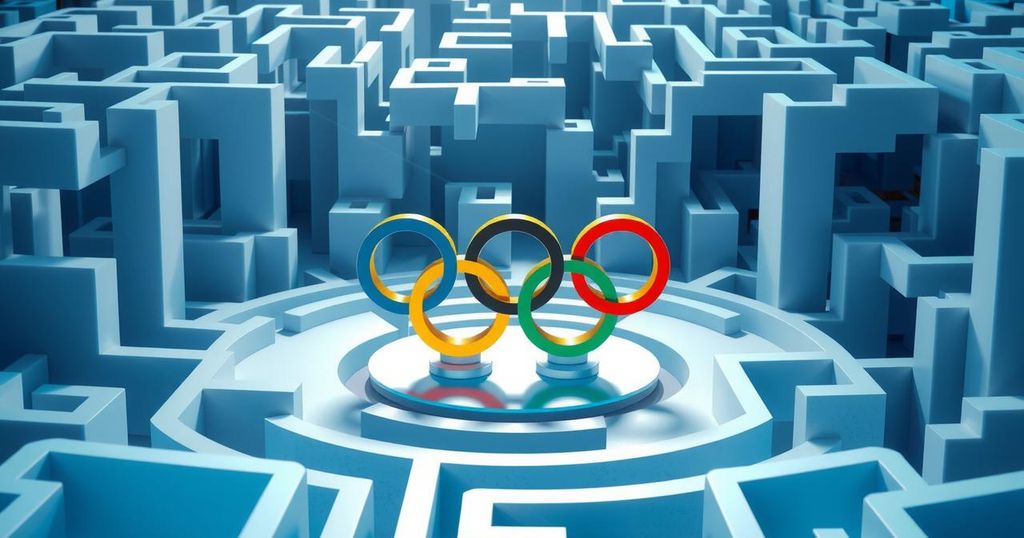The IOC presidential election on March 20 highlights growing concerns regarding the organization’s financial model, driven by a decline in major sponsorships and the need for innovation amid evolving media and technology landscapes. Pressure mounts on the incoming president to increase revenue and oversee costs, while over 400 Olympians advocate for prioritizing climate initiatives in the new administration.
The upcoming election for the International Olympic Committee (IOC) president on March 20 comes at a time when the Olympic movement appears successful, particularly after the anticipation surrounding Paris 2024. However, as Josh Noble from the Financial Times notes, the new president will encounter significant challenges, particularly regarding the IOC’s evolving business model amid changes in media and technology. The election campaign has primarily debated which candidate can effectively rejuvenate this model, as a recent decline in major sponsors further strains the IOC’s budget.
Currently, the IOC projects committed commercial revenue of $7.4 billion for its four-year cycle leading up to the 2028 Los Angeles Games. This is a decrease from $7.7 billion secured for Paris 2024, although it shows an increase from $6.9 billion from Tokyo. Given that high inflation is impacting grassroots sports organizations reliant on IOC funding, the newly elected president will face immediate demands to increase revenue and reduce operational costs while the organization’s workforce has more than doubled in the past decade. Failure to achieve these objectives may jeopardize the entire Olympic framework.
Over 60% of the IOC’s income is derived from long-term television broadcast contracts, most notably with NBC, which recently entered a $3 billion deal to extend its coverage through 2036. As contracts continue to evolve, the traditional model of securing broadcast rights for large payments appears to be changing. Although most major television agreements are still in effect, the new NBC partnership exemplifies a trend toward more intricate negotiations focused on collaborative efforts in production and advertising strategies. Moreover, about 30% of revenue comes from the Olympic Partner (TOP) program, which is experiencing a contraction due to recent sponsor departures, including Bridgestone and Panasonic.
In a related development, recent outreach by over 400 Olympians from nearly 90 countries urges the forthcoming IOC president to prioritize climate issues. Notable reporters such as Nick Mulvenny from Reuters detail that these athletes have expressed their concerns in an open letter, requesting a meeting to discuss environmental initiatives. The Olympians are advocating for enhanced commitments to reduce carbon emissions, promoting sustainable practices among host cities, and establishing a standard for sponsorship agreements regarding corporations with poor environmental records.
The IOC faces significant challenges as it prepares for the upcoming presidential election, particularly concerning its business sustainability in the face of declining sponsorships and evolving media landscapes. The projected revenue highlights the necessity for immediate action by the new president to boost income and manage expenses effectively. Furthermore, the call from Olympians for climate-focused initiatives underscores the need for the IOC to align its strategies with global sustainability goals, illustrating the shifting priorities within the Olympic movement.
Original Source: www.sportsbusinessjournal.com




